2023 IMPACT REPORT
VILLAGE INVESTORS PROGRAM
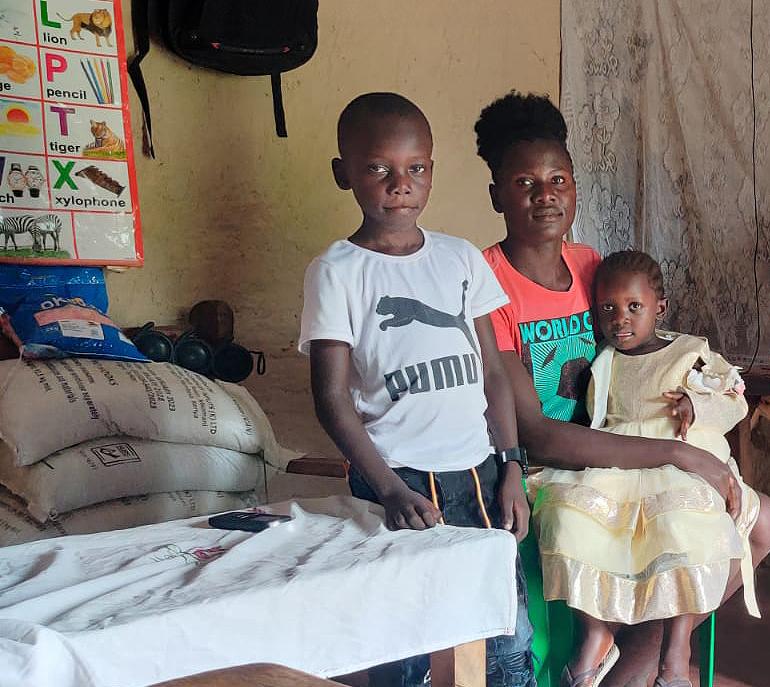
13,079 parents and guardians across Kenya, Malawi, Tanzania and Uganda trained in community banking and business skills in 2023.

89%
$7,200,000 rise in the amount of money members are saving over three years.
generated by 39,142 parents and guardians since the launch of the program in 2014.
79% of VIP members were women, a key step in breaking the cycle of poverty for families.
44,584 children benefitted through improved access to education, nutrition and opportunity across the year.
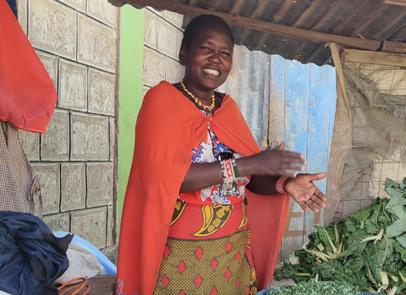
116,000 children supported to date.
INTRODUCTION
Supporting parents and guardians to start and grow their own small business is one of the best things we can do to create long-term, sustainable change for vulnerable children living in communities marginalized by poverty.
The Village Investors Program (VIP) itself is simple. Over three years, we teach parents and guardians to establish their own community banking groups known as VIP groups. We then train them to pool their savings together and use loans from their group to invest in their own enterprises.
For children, the impact is life changing. Their parent or guardian’s business and greater household income means more money for nutritious food, healthcare and education.
It means a safer living environment with greater opportunity. It means investment in their future.
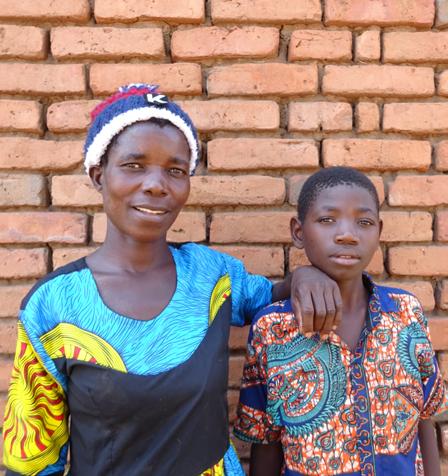
Coupled with our education and child rights-focused programs, the VIP enables us to address the underlying causes of poverty in a holistic way. It ensures that communities become safe places for children to grow up in and thrive.
2023 was another significant step forward for the VIP and we are delighted to share this latest Impact Report.
“My doughnuts business has boosted my family’s life. I now earn enough income to keep my children in school. Christopher, my eldest, is more confident now and goes to school with a smile on his face.”
Mary, a member of the VIP in Ndakwera, southern Malawi.
WHERE WE WORK
Our work is focused in predominantly rural and isolated communities where people do not have access to formal financial systems.
MALAWI
• 42% of the population live on less than $2.15 a day
• 31% of the population are undernourished
• 18% of children are engaged in child labor
• 70% of the population live on less than $2.15 a day
• 18% of the population are undernourished
• 14% of children are engaged in child labor
*Sourced from the latest available data from the World Bank & UNICEF.
• 36% of the population live on less than $2.15 a day
• 28% of the population are undernourished
• 8% of children are engaged in child labor
TANZANIA
• 45% of the population live on less than $2.15 a day
• 24% of the population are undernourished
• 25% of children are engaged in child labor
KENYA
UGANDA
POVERTY IS A GENERATIONAL CYCLE
Across the countries we work in, an average of 48% of their populations live in extreme poverty and on less than $2.15 a day. Life under these circumstances makes every day a struggle for families to meet their basic needs, with financial stability out of reach.
Without a reliable income, access to financial support or savings to fall back on, they are extremely vulnerable to shocks, such as a medical emergency or a failed harvest - a risk that is only growing due to the climate crisis.
The knock-on effect for children can be extremely damaging to both their physical and mental development. Day-to-day, they face limited access to healthcare and nutrition, school fees and materials, and a safe, nurturing environment.
As they get older, they may have to leave school entirely to find work, earn an income and help out at home. Not only does this mean that they miss out on the opportunity to learn new skills and access better paying jobs in the future, children often enter unsafe working environments and are at risk of exploitation. Girls become extremely vulnerable to early marriage and pregnancy.
Across generations, entire communities can become trapped in the cycle of poverty. But it can be broken.
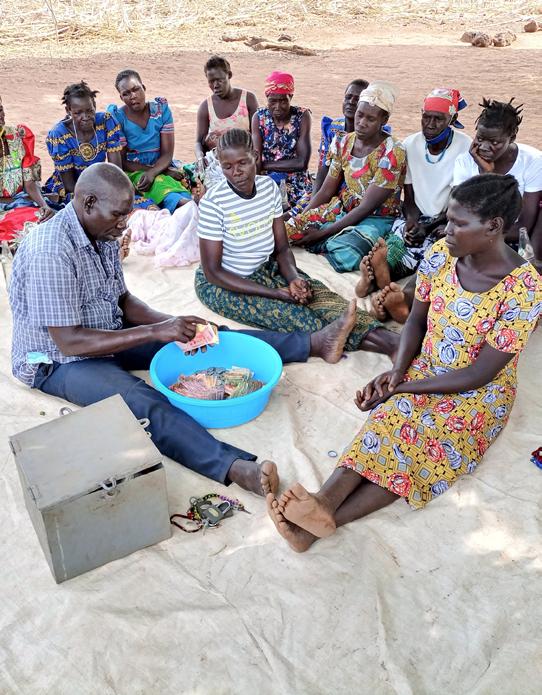
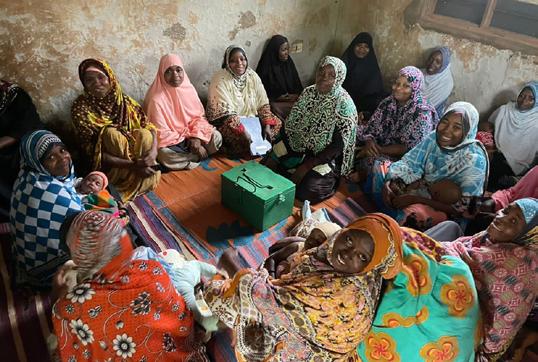
HOW DOES THE VIP WORK?
Together with our in-country partners, we introduce the VIP into new communities through awareness meetings and share the benefits of community banking. Groups of up to 30 members are then formed.
Over three years, we provide ongoing training workshops in savings, loans, business skills and even adult literacy sessions where necessary, equipping the groups to generate new opportunities and improve their financial security.
1 2 6 5 4 3
Members meet weekly to deposit small amounts of money called Shares into their group Savings Fund. Pooling this money creates the group’s loan capital.
Members are able to take loans from the Savings Fund to invest in their businesses with an agreed interest rate which grows the group’s capital.
Members invest in a Welfare Fund which they can take interest-free loans from in an emergency, such as to buy medicine for their children.
They also invest in an Orphan Fund which is used to support vulnerable children in their community who are in urgent need of food, school fees or other necessities.
At the end of each savings cycle, typically each year, groups Share-Out the money saved by each member across the year, as well as their share of the interest.
After 3-4 years of training, the groups Phase-Out from the program. As they are self-funded and self-regulated, the groups continue to run independently.
2023 IN NUMBERS
KENYA 113 groups 2,050 members 5,267 children reached MALAWI 71 groups 1,573 members 4,481 children reached TANZANIA 89 groups 2,138 members 6,957 children reached UGANDA 256 groups 7,318 members 27,879 children reached RG O U PS EM M B E RS RDLIHC E N R E ACHED
$159,776 was invested in training, equipment and costs for our partners in 2023.
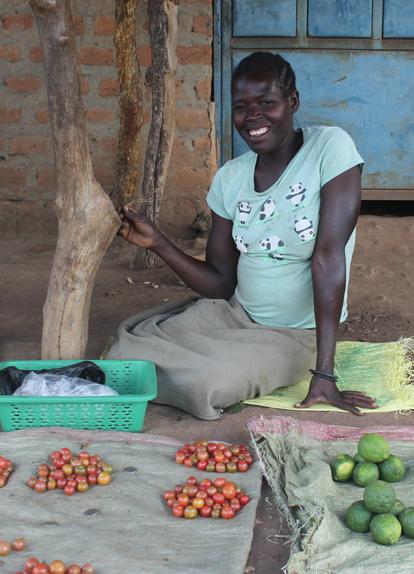
42 is the average number of training days delivered to VIP groups by each of our partners across the year.
$842,840 was generated by all VIP groups in 2023, a 436% return on our investment.
THE POWER OF A SMALL BUSINESS
A
sustainable livelihood is key to providing the financial stability needed to break the cycle of poverty.
With loans from their groups, VIP members can access capital that was previously unavailable to them. A loan can be vital for a business in its early stages, funding much needed inputs such as seeds for a farming project, ingredients for a bakery business, or stock for a grocery store.
Members are also given guidance on how to start a business as a collective, called a group Income Generating Activity (IGA).
Typically, this involves purchasing a large quantity of a regular household items at wholesale, giving them assets to sell to other members of their group at market price, with the profit going back into the group’s loan capital.
A joint IGA is a key step to building resilience as it gives them a vital second source of income that is crucial during difficult times.
Across several cycles, the impact of a VIP group compounds. As businesses grow and families have more income to spend and invest throughout their community, oncechallenging places for children to grow up in become vibrant local economies full of opportunity.
Of the groups that completed three to four years of training with the program in 2023:

was the average final share-out amount, an instant cash injection for members’ businesses and families. This represents an 89% increase from their first share-out.
55%
of members invested in livestock in their final year. Purchasing animals demonstrates improved security as they provide back-up income if their business has a low-income month.
100%
of groups were running a group IGA and Welfare Fund.
“Before starting my business life was very difficult. We were only eating once a day and my children were not going to school. After I started selling maize and potatoes I started to see amounts of money I had never seen before. I am very happy that my children can now eat three meals a day and are back in school.”
Sifa, a single mother to five children from Mwanza, Tanzania.
£83
LIFE CHANGING SUPPORT FOR CHILDREN
For every parent or guardian who is a member of a VIP group, our data shows that an average of three children see the immediate and longer-term benefits of a greater household income. These include:
IMPROVED HEALTH AND NUTRITION
Parents and guardians can buy a wider variety of nutritious food for their children and ensure they eat three meals a day. They can take them to health centers and afford medicine, and purchase soap and detergent to improve their hygiene.
INCREASED ACCESS TO EDUCATION
Parents and guardians are better able to afford school fees and learning materials. There is also a reduced risk that children will have to contribute financially through child labor so they can stay in school full-time.
A SAFER HOME ENVIRONMENT
Whether it’s money to cover emergency costs such as medical bills or property damage, or invest in longterm opportunities, a greater household income means that children can reach their full potential.
BETTER PROTECTION OF THEIR RIGHTS
Easing financial pressures on families reduces the genderspecific risks that many girls face such as child marriage and early pregnancy.
VIP groups also have an impact on children in their wider communities.
Through their Orphan Fund, VIP groups are expanding the impact of the program to children outside of their own households. With total autonomy on how they spend
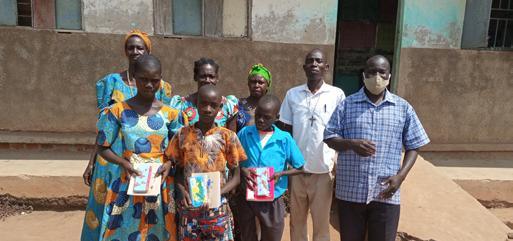
SUPPORTING CHILDREN WHO HAVE BEEN ORPHANED IN UGANDA
In northern Uganda, we worked with 32 VIP groups in 2023, who each supported an average of 15 young people in their community across the year through their Orphan Funds. Pictured here are members of one of the groups providing children who have been orphaned with learning materials such as books and stationary. They also support them with school uniforms and fees.
this money, the groups choose to support vulnerable children and address urgent needs how they see best fit through a variety of different measures.
In 2023, VIP groups supported 12,502 vulnerable children outside of the members’ households using money from their Orphan Funds. This included:
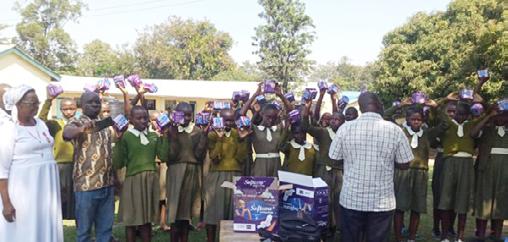
ADDRESSING THE URGENT NEEDS OF GIRLS IN KENYA
In western Kenya, the members of the Kocholya VIP Group collectively saved the equivalent of $4,050 across 2023. Realizing that many girls in Kocholya were regularly missing school when they had their periods, the group have been using their Orphan Fund to purchase period products for 29 girls every month.
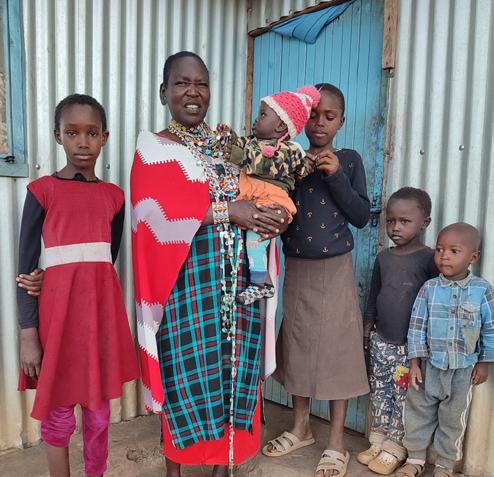
“On a good day I earn around Ksh 900/= ($5.70) selling fruit and vegetables from my shop. I have been able to buy land and construct my own house - now I have a home that I share with my grandchildren and we are happy.”
Diana, a member of the VIP in Isinet, southern Kenya.
UNLOCKING OPPORTUNITIES FOR WOMEN
We are delighted that 79% of the parents and guardians who trained with the VIP in 2023 were women. But why is this so important?
Across the countries we work in, gender-based inequality puts women at a distinct disadvantage. Often as the primary caregivers to children, mothers and female guardians are persistently excluded from economic opportunities.
Particularly in rural areas, the lack of access to loans and formal financial services are a huge roadblock to them starting businesses, earning an income, and providing for their children.
Exclusion means many different things for women, not just in terms of access to loans. For example, in Kenya, they own just 1% of all land titles, presenting a huge barrier for them to take part in small-scale farming - a direct source of food and income for their families.
Even when women are earning, their incomes are consistently lower than men’s. In Malawi, this gap means that for every dollar earned by a man, a woman earns just 64 cents.
Being part of a VIP group means that women can:
OWN THEIR OWN ASSETS AND LAND
Women who otherwise may have restricted access to independent ownership can rent or buy land and property for themselves, and invest in livestock.
MANAGE THEIR OWN MONEY
Women have the autonomy to make financial decisions on their own because of the income from their business and savings through the group.

Reaching a high proportion of women through the VIP is crucial.
BUILD THEIR CONFIDENCE
Women are more informed about how to spend and invest their money, and feel empowered by running and expanding their businesses, learning new skills and being the breadwinners of the family.
INVEST IN THEIR CHILDREN’S FUTURES
A profitable business means that mothers can more easily meet their children’s needs and they can also make more strategic, long-term life choices with their financial independence.
It has been shown that mothers invest a greater share of their income within their households. For children, this means more money for school fees, healthcare and nutrition.
Empowering women benefits entire communities and is key to breaking the cycle of poverty, especially for children.
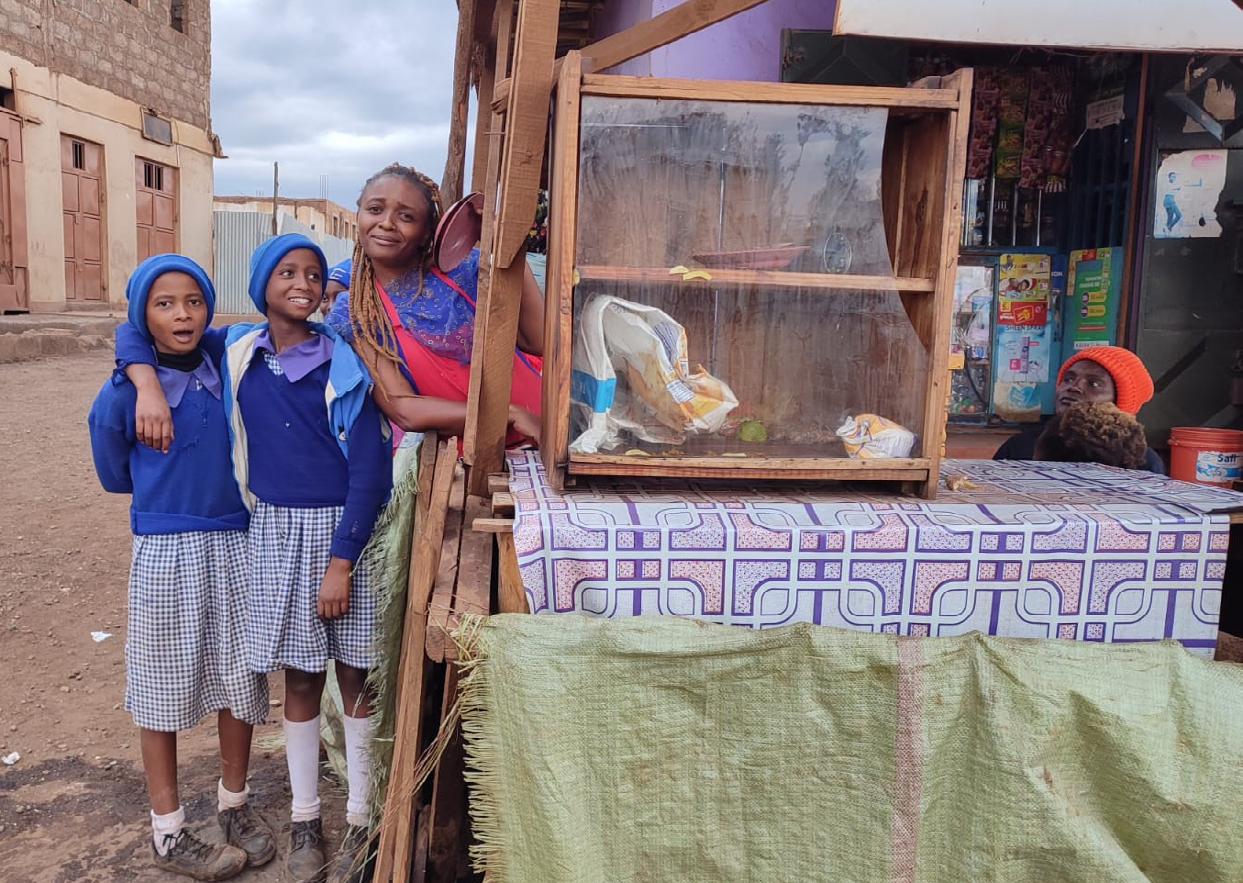
“I AM PLANNING FOR OUR FUTURE”
JACINTA’S STORY
“My name is Jacinta. I am 34 years old, married and blessed with two beautiful daughters, Alice and Blessing, who are both in primary school. We live in Illasit, a town in southern Kenya.
Life has not been easy, my husband would often leave for days just trying to find work so that he could support the family. He would typically send me around Ksh.300/= ($1.90) a week which is not enough to cover our basic needs.
In 2021, during a school parents meeting, I heard about the VIP and I soon joined a group. I started saving around two shares equivalent to Ksh.400/= ($2.50) every week since I was very determined to change our lives for the good. I managed to put more and more shares into the group and at the end of the group cycle, we shared out and I received Ksh.18,500/= ($115).
Before the share-out, we were taken through business planning and management training and I was very eager to start my own business. I invested the money I got at the end of the year to start a bhaji and chips business. Using the money I received, I spent Ksh.7,600/= ($48) on
business startup costs, I paid Ksh.3,200/= ($20) for my girls’ school fees and invested the rest of the money in urgent household items.
By the end of 2023, I was making a profit of around Ksh.900/= ($5.70) each day. Life has been so kind to me, I am now relaxed and I can focus on my business. I am able to take care of my family’s basic needs, pay all my children’s school fees and even set aside some money as I am planning for our future.”
Asked about the changes she has felt since Jacinta joined the group, Alice, her eldest daughter, replied:
“Before, my mother would come home late and be very tired. We hardly spent any time together. Now she has more time to spend with us, help with our homework, and we have nice food at home.”
It costs just $15 for a mother like Jacinta to be a part of the VIP for a year, helping them to transform their children’s future.
MAKE A DONATION
MONITORING AND EVALUATING THE VIP

Pictured here is a leadership workshop for members of two VIP groups in Tanzania
Our partners each have their own designated VIP Officer who is responsible for visiting the groups several times a month. Alongside delivering training workshops, the VIP Officers support the groups in their meetings, help the members to work effectively together, and ensure they are maintaining their records and data correctly, which they share with the WeSeeHope Team every six months.
A member of our Programs Team will visit the communities at least twice per year to observe the VIP groups in action and to assess whether they are functioning well and to hear feedback from the members themselves. They will review the groups’ weaknesses and strengths, such as:
• If members are repaying their loans effectively.
• Whether groups have set up an Orphan and Welfare Fund.
• How well trained the facilitators are and the standard of support they are giving their group.
• If members have established or expanded their businesses and how well they are functioning.
• The level of community ownership and whether they are making steps towards running independently.
OUR DATA DASHBOARDS
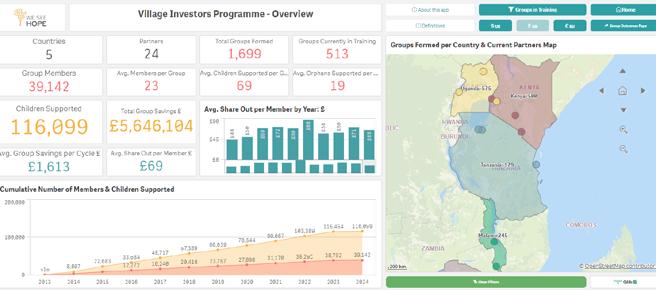
Data is a key tool that enables us to monitor and evaluate the progress and success of each group and the program as a whole. Throughout the year, we collect data from each group, including:
• The amount saved in the Savings Fund.
• The interest collected in each group from loans.
• The amount saved in the Orphan and Welfare Funds.
• The average share-out amount per member.
Collecting extensive economic and social data from every VIP group formed since we launched the program in 2014 up until the moment that they are operating independently of our support, we are able to compare, contrast and measure the groups.
Working with our long-term corporate partner, Qlik.orgthe corporate responsibility arm of leading data analytics company Qlik - we have developed an incredible live and interactive data dashboard that visualizes all of our data for the VIP. FIND OUT MORE
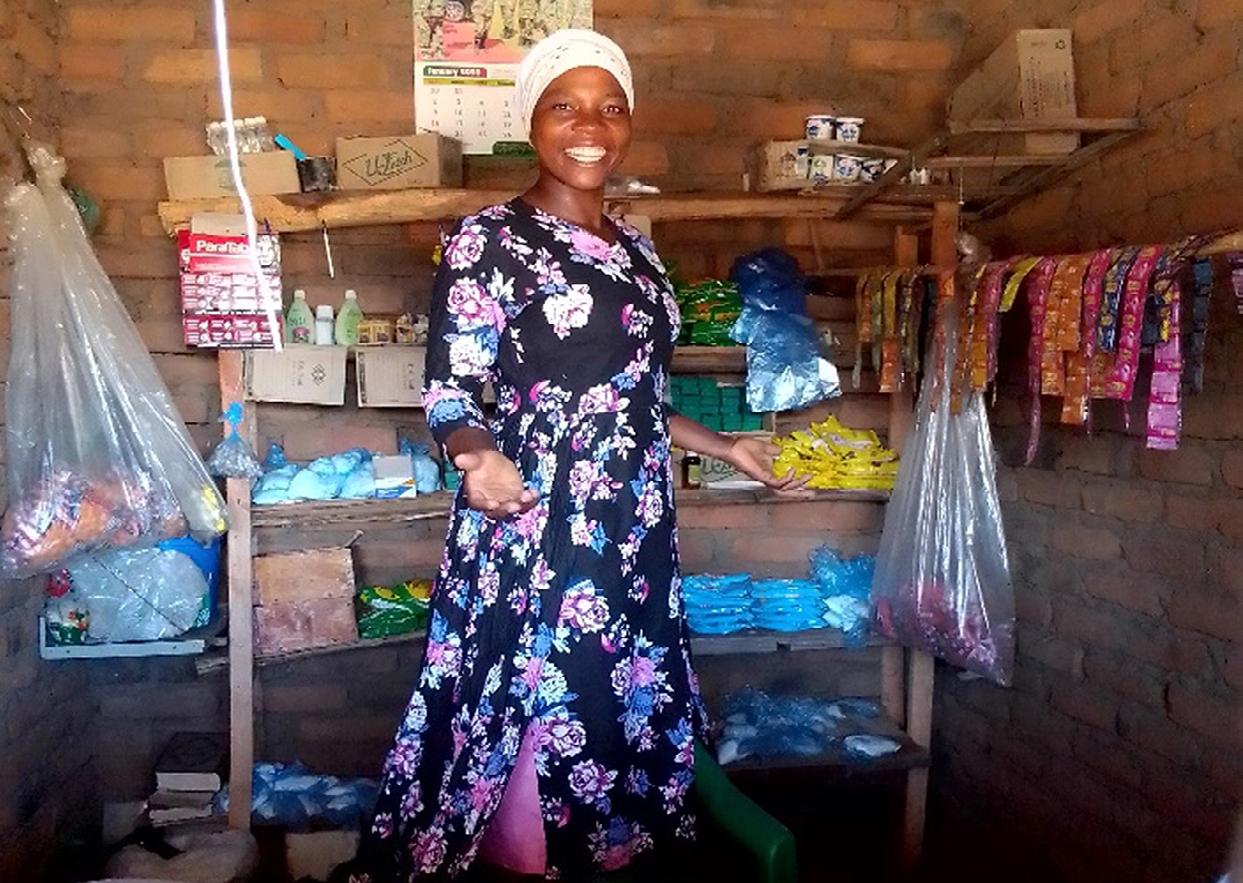
THANK YOU
2023 was another standout year for the VIP. At a time of increasing uncertainty, savings and loans groups continue to provide a platform of stability and opportunity that is changing the lives of parents and their children across East Africa.
Thank you so much to all the individuals, corporate partners, and trusts and foundations for your incredible support of WeSeeHope and the VIP throughout the year.
Collaborating with corporations that share our passion for community-led, sustainable development is part of our DNA. If you are interested in supporting the VIP in 2024, we would be delighted to hear from you at Hello@WeSeeHopeUSA.org.
















